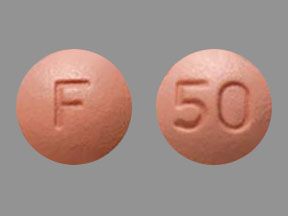Galantamine and Alcohol/Food Interactions
There is 1 alcohol/food/lifestyle interaction with galantamine.
Galantamine Food/Lifestyle
Moderate Food Interaction
Galantamine should be taken with food, and you should drink plenty of fluids throughout the day to reduce the severity of certain side effects such as nausea, vomiting, diarrhea, loss of appetite, and/or weight loss. Extended-release formulations should be swallowed whole (i.E., do not crush, chew, or divide the pill) and are often recommended to be taken in the morning. You should speak with your healthcare provider before using grapefruit products (fruit, juice, supplements) with galantamine as they may increase the blood levels and side effects of galantamine. You should also contact your healthcare provider if you experience changes in your heart rate, seizures, difficulty breathing, trouble urinating, dizziness, fainting, nausea, vomiting, diarrhea, and/or unexpected weight loss. It is important to tell your doctor about all other medications you use, including vitamins and herbs. Do not stop using any medications without first talking to your doctor.
Switch to professional interaction data
Galantamine drug interactions
There are 445 drug interactions with galantamine.
Galantamine disease interactions
There are 6 disease interactions with galantamine which include:
More about galantamine
- galantamine consumer information
- Check interactions
- Compare alternatives
- Pricing & coupons
- Reviews (16)
- Drug images
- Side effects
- Dosage information
- During pregnancy
- Drug class: cholinesterase inhibitors
- En español
Related treatment guides
Drug Interaction Classification
| Highly clinically significant. Avoid combinations; the risk of the interaction outweighs the benefit. | |
| Moderately clinically significant. Usually avoid combinations; use it only under special circumstances. | |
| Minimally clinically significant. Minimize risk; assess risk and consider an alternative drug, take steps to circumvent the interaction risk and/or institute a monitoring plan. | |
| No interaction information available. |
See also:
Further information
Always consult your healthcare provider to ensure the information displayed on this page applies to your personal circumstances.


